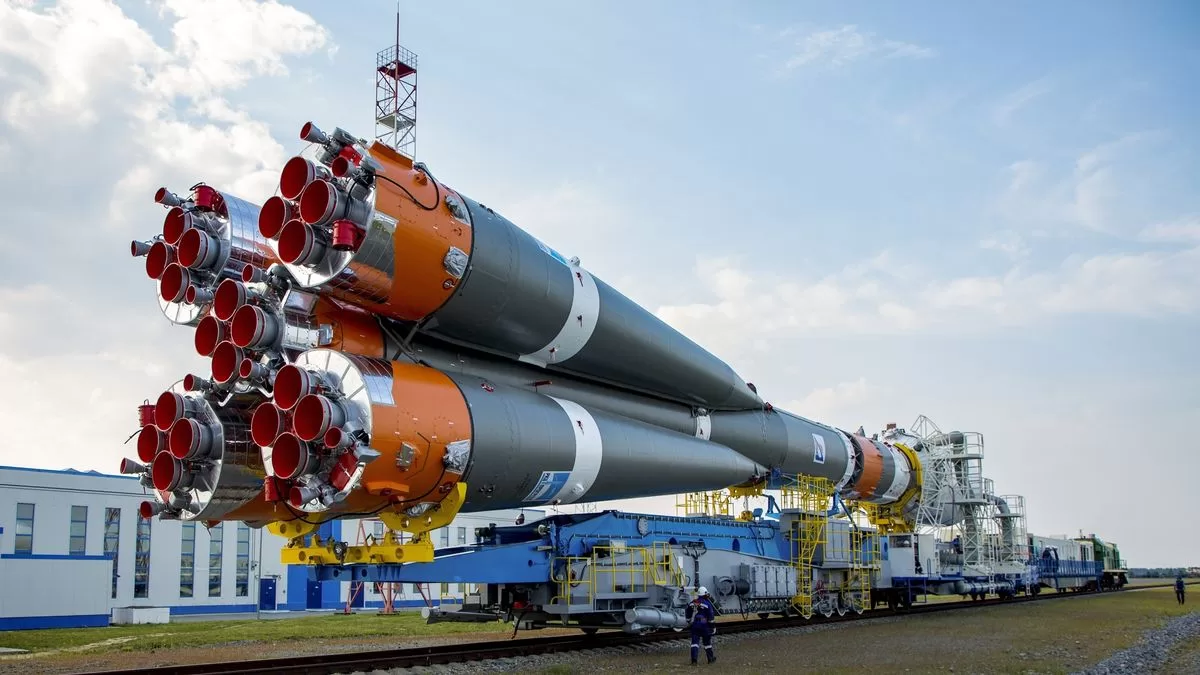It will be the first Russian launch to the Moon since 1976, when the country was part of the Soviet Union, and will not be assisted by the European Space Agency, which suspended its cooperation with Moscow after the invasion of Ukraine.
Russia’s Luna-25 spacecraft is scheduled to reach Earth’s natural satellite on August 23, roughly the same day as an Indian probe launched on July 14.
Only three nations have managed to land spacecraft on the moon: the Soviet Union, the United States, and China. India and Russia claim to be the first to land on the lunar south pole.
Roscosmos, Russia’s space agency, said it aims to showcase the country’s ability to transport a payload to the moon and “ensure that Russia has access to the lunar surface.”
“Studying the Moon is not the goal,” said Vitaly Egorov, a well-known Russian analyst on space affairs. “The goal is the political competition between two superpowers – China and the United States – and a group of other countries that also want to claim the title of space superpower.”
The sanctions imposed on Russia for its invasion of Ukraine make it difficult for it to access Western technology, which affects its space program. Luna-25 was initially scheduled to carry a small lunar rover, but the idea was scrapped to reduce the spacecraft’s weight and increase its reliability, analysts said.
“Foreign electronic components are lighter, locally made ones are heavier,” Egorov noted. “Although scientists might be tasked with studying lunar water, for Roscosmos the main task is simply landing on the moon: recovering lost knowledge from Soviet times and learning how to carry out these missions in a new era.”
The Luna-25 spacecraft will be launched from the Vostochny Cosmodrome, in the Russian Far East. The spaceport is one of Russian President Vladimir Putin’s pet projects and is crucial in his efforts to turn Russia into a space superpower and to stop launching from the Baikonur Cosmodrome in Kazakhstan.
It is unknown if Putin will attend the launch. In 2016, Putin responded to a failed Soyuz rocket launch, for the failure of which he reprimanded officials, according to Russian news outlets.
India failed a previous attempt to land on the moon’s south pole in 2019 because the spacecraft crashed on the lunar surface.
The lunar south pole is of particular interest to scientists, who believe that the region’s craters could contain water due to their permanent shadow. Frozen water in lunar rocks could be transformed by future explorers into air and rocket fuel.
“The Moon is virtually unchanged and all of its history is written on its face,” said Ed Bloomer, an astronomer at Britain’s Royal Observatory in Greenwich. “It is pristine in contrast to Earth. It is its own laboratory.”
Luna-25 will take samples of lunar rocks and dust. The samples are crucial to understanding the lunar environment before building any bases there, “otherwise we could end up building things and have to abandon them for six months due to abrasive wear,” Bloomer said.
___
Associated Press writers Marcia Dunn in Cape Canaveral, Fla., and Jim Heintz in Tallinn, Estonia contributed to this report.
FOUNTAIN: Associated Press

